I grew up negotiating in the spaces between. Between two countries. Between languages. Between the idea of who I was and what was expected of me because of my identity. From the early stages of my life, I learned how to negotiate in order to belong and be understood. Being born in the Philippines and raised in Okinawa, I carry with me two communities whose histories mirror each other more than one might expect. Coincidentally, both also understand what it means to continually “negotiate” for what is inherently theirs: their land, their culture, and their dignity.
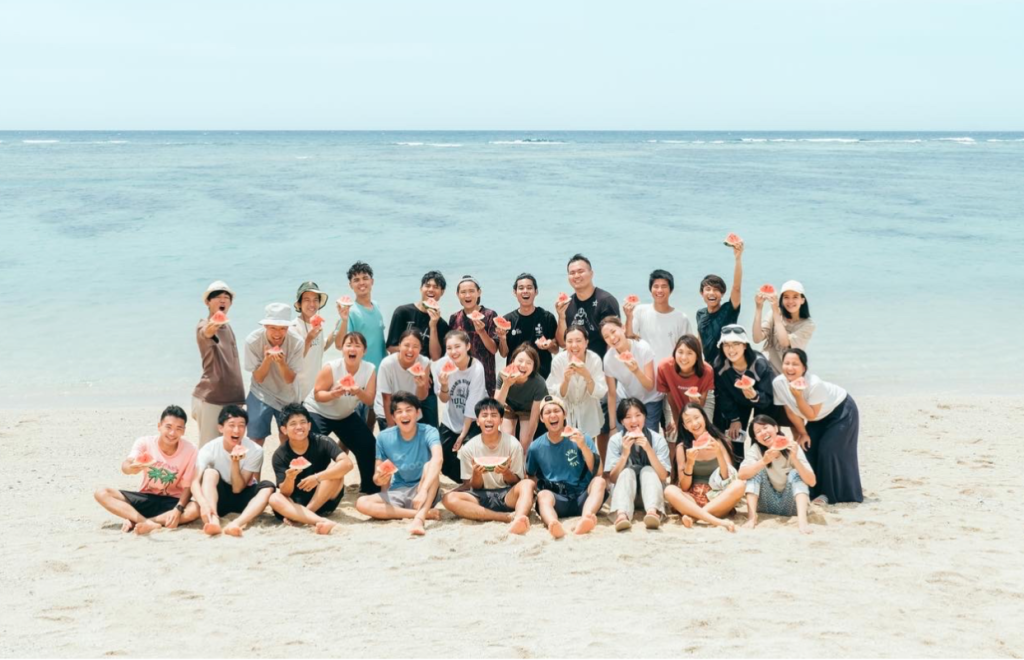
GAT (@gat_giveandtake) was a youth-led environmental organization I was part of during the pandemic. It consisted of university students and environmental activists from all over Japan. This picture was taken when we toured the members around Okinawa. I was active from 2022-2023.
Despite having only 0.6% of Japan’s land area, my home island, Okinawa, hosts 70% of the U.S. military bases in Japan. I spent my childhood with the sounds of the Osprey aircrafts flying overhead, and was taught that the massive land beyond the tall, chain-link fences was an area that I can never freely step foot in. People from my island have protested for decades against the numerous accidents, crimes and disruptions associated with the U.S. bases, yet they remain overlooked in Japan’s national policy and in diplomacy between the U.S. and Japan.
Understanding the issues in Okinawa deepened my interest in diplomacy. The questions surrounding diplomacy and representation—regarding whose voices are included in terms of current international debates and negotiations, or whether certain things should even be negotiated, rather than simply recognized as rightfully belonging to a community—have inspired me to get to know more about different cultures, communities and the stories they hold. This deepened my love for my Okinawan roots, and encouraged me to explore it more from different perspectives throughout my teenage years. From learning more about The Battle of Okinawa, to practicing Karate (an Okinawan martial art) and modernized Kumi Odori (an Okinawan traditional dance) for more than half of my life, I’ve dedicated myself to understand not only the cultural expressions of my identity, but also the historical struggles that have shaped my community.
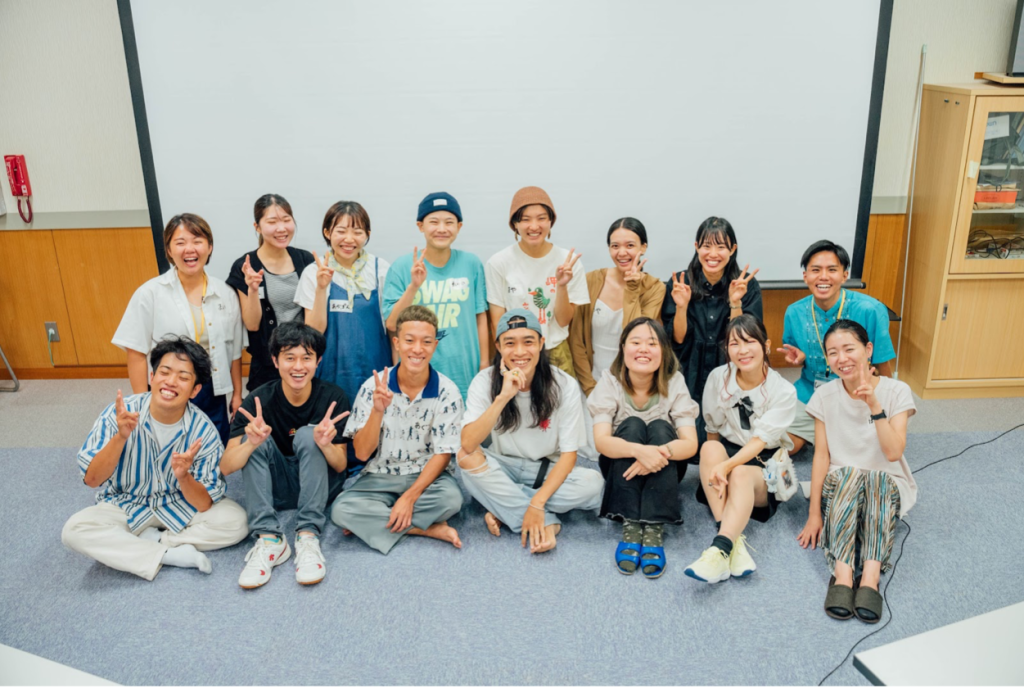
Workshop with social activist Shun Takenaka, during Chikyuu Kouken Gakuen event with GAT.
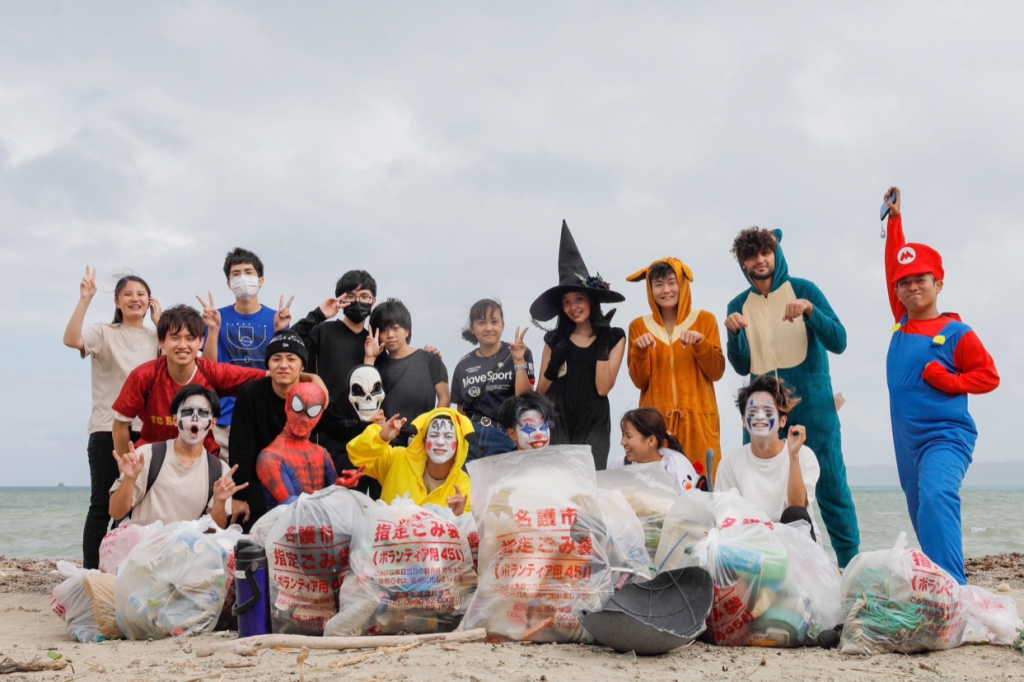
Monthly Beach Clean Ups with friends in Yomitan City, Okinawa. This was taken during Halloween 2022.
If so, you might ask, Why did you choose to take BA Philosophy in the University of the Philippines Diliman?
My love for the Philippines is something I deeply owe to both of my parents, especially to my mother. Ever since my siblings and I were young, my parents never fail to remind us to always be proud of our Filipino heritage (which is, unfortunately, becoming more and more uncommon amongst Filipinos in Okinawa nowadays). The Filipino language was constantly spoken in the household, Filipino food was a staple menu, and YouTube archives of TV Patrol always played on TV before we went to bed. However, in contrast to Okinawan culture, my understanding of the Philippines has always felt distant and superficial. It was something I’ve only known through books and screens. I wanted to truly experience and understand what I was describing when I spoke about Filipino culture, my culture, to other people. The desire to study in the Philippines, specifically, at the University of the Philippines eventually grew bigger during high school.
Choosing Philosophy as my course felt like a natural decision. In my highschool’s International Baccalaureate (IB) Diploma Programme, I took a course called Theory of Knowledge (TOK). There, we mainly learn and analyze knowledge claims, explore theories and knowledge questions, and engage with thinkers such as Plato, Descartes, and Wittgenstein. Every TOK class was eye opening, and made me realize that furthering my study in philosophy will expose me to more ideas, will train me to see the world through multiple perspectives, and help understand different conceptions of truth. That’s when my dream of pursuing Philosophy in the University of the Philippines came into clear focus.
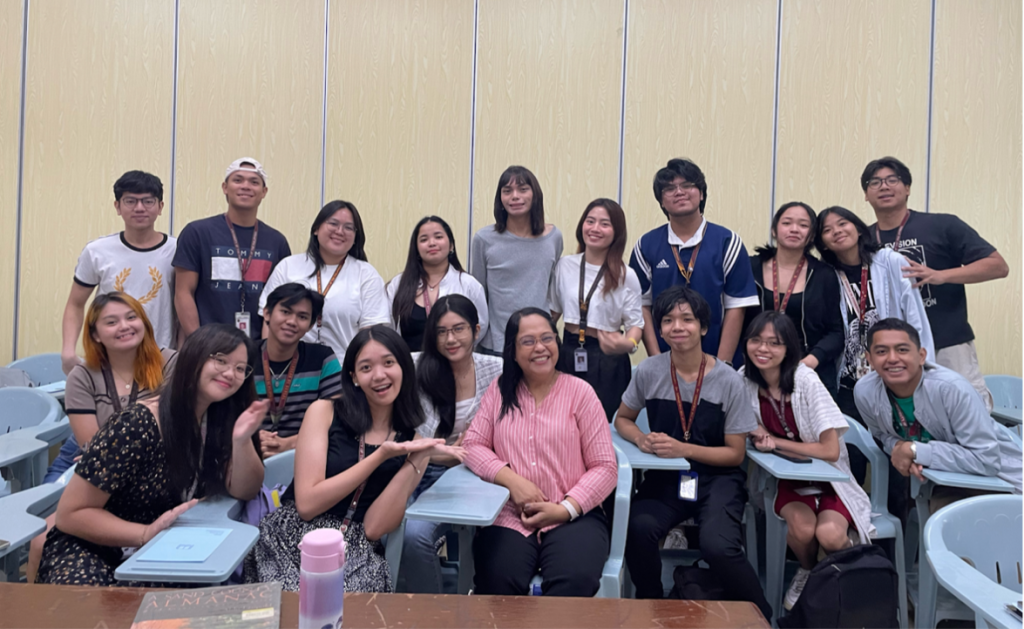
One of my favorite classes in UP, Philo 173 (Environmental Ethics) under Prof. Jeanette L. Yasol-Naval, PhD. My introduction to Filipino Environmental Ethics.
As expected, being a foreign student was not easy. I had to adapt to a new academic culture while simultaneously navigating through lifestyle differences in a foreign country all by myself. Looking back, these very challenges helped me develop key skills that I believe are essential in diplomacy: cultural sensitivity, critical thinking, and the ability to communicate clearly across different perspectives. Philosophy taught me how to listen, question, and negotiate better—all of which are vital when working in multicultural environments. While juggling both my philosophy classes and advocacy work, I came to appreciate the true value of philosophy as a discipline. Philosophy should engage beyond the academic theories and its literature, and apply to real-life issues that we are currently facing today as well. After all, what is the use of knowledge if we do not intend to use it?
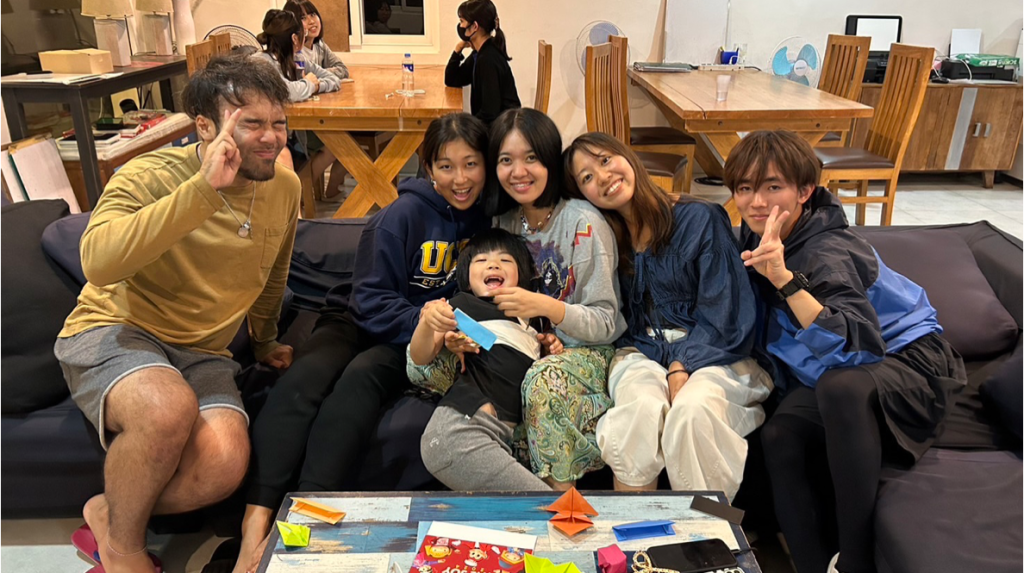
In 2023, I was also a Project Management Intern in AIAP Language School, located in Tagaytay, Philippines.
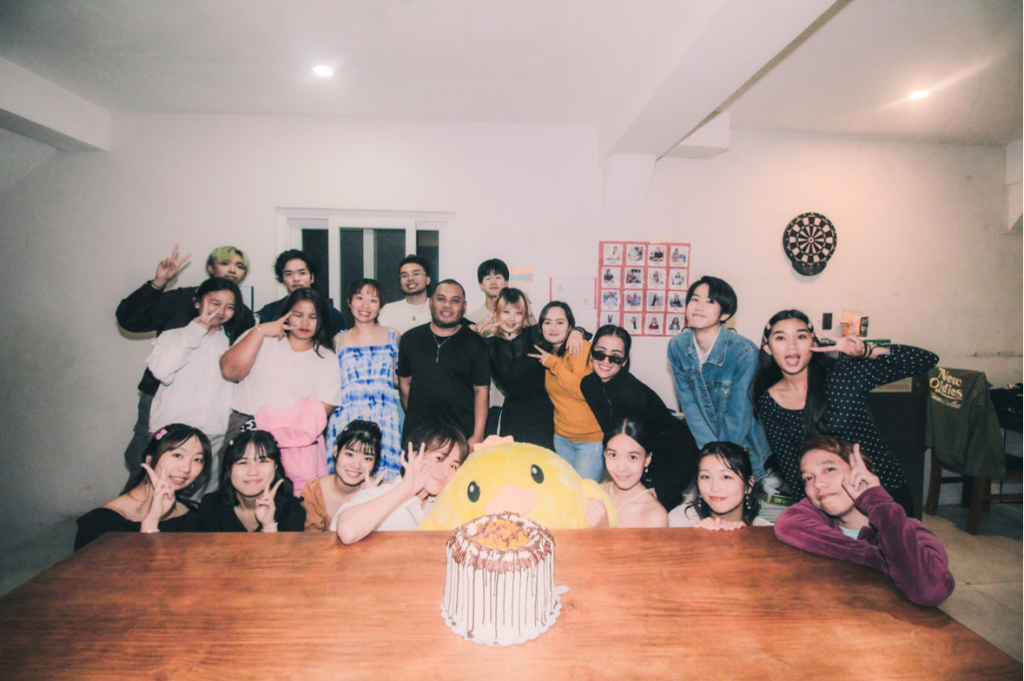
My last day as a Project Management Intern in AIAP Language School.
With that in mind, the notion of philosophy as a discipline has always been at the heart of every activity I participated in. From my experience, philosophy has always thrived in collaborative spaces that are beyond the academe, whether it was in a youth-led environmental organization that my Japanese friends and I created during the pandemic, or in weekly Community of Inquiry sessions from my university organization.
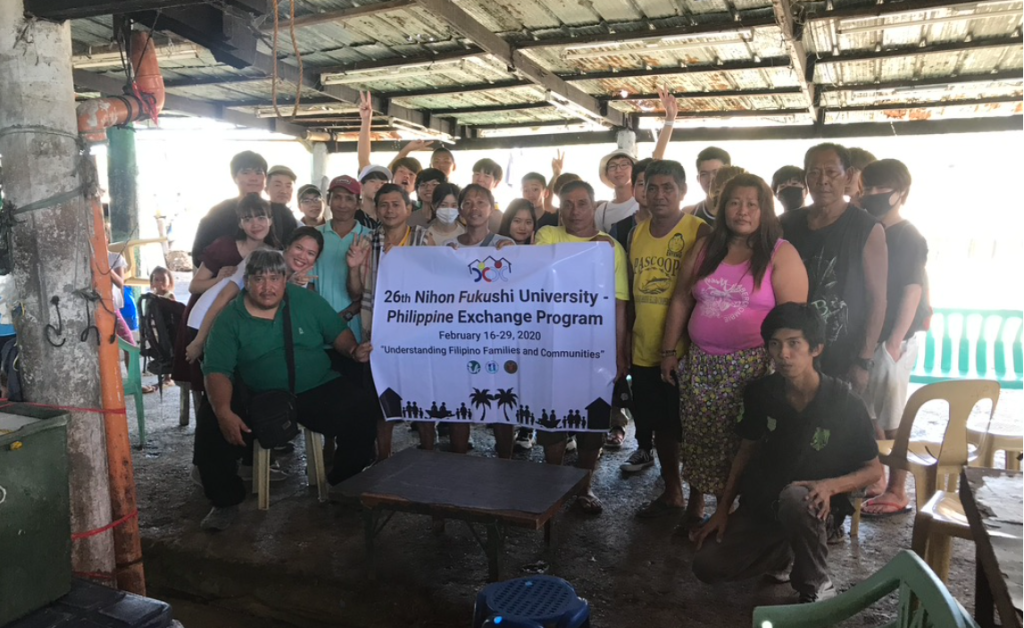
I volunteered as an Japanese-Filipino-English interpreter under the Office of International Linkages Diliman for 26th Nihon Fukushi University – Philippine Exchange Program, 2020.
As I move forward from college, I plan to begin my path through international cooperation work, particularly under The Japan Forum (Kokusai Bunka Forum) and JICA (Japan International Cooperation Agency), where I hope to contribute to grassroots, people-centered progress focusing on multicultural education and community development. Working on the ground with diverse communities across Asia and the Pacific will help deepen the kind of understanding I believe diplomacy requires. Eventually, I plan to take the Specialist Officer exam and enter the Japanese Ministry of Foreign Affairs, carrying with me the memory of Okinawa and the Philippines, the education I received in the University of the Philippines, and the commitment to serve both countries through bridge-building, empathy, and philosophical dialogue.
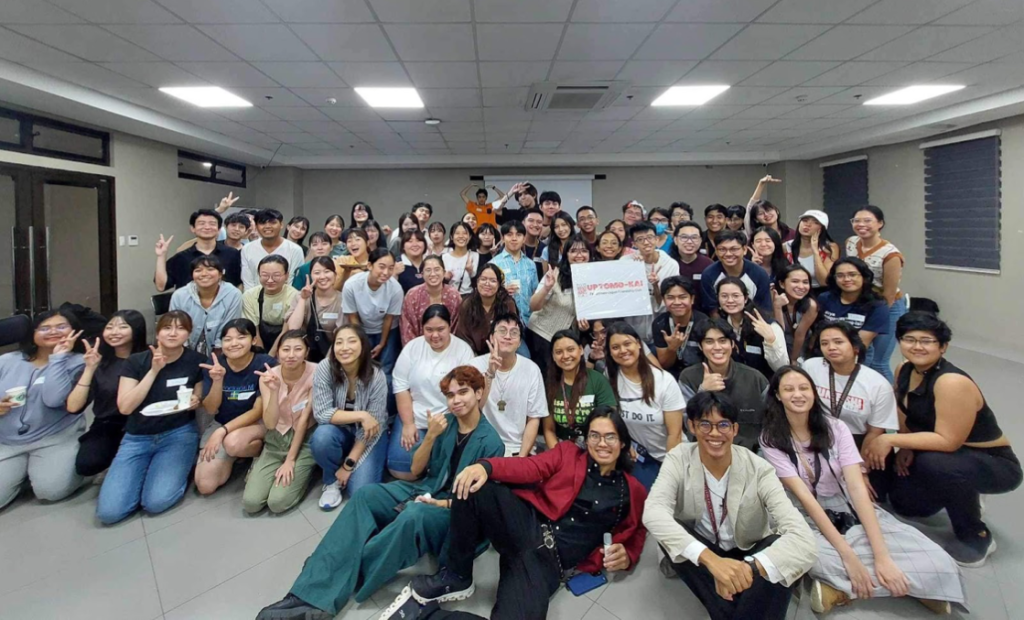
My home organization since I was a freshman, UP Philippines-Japan Friendship Club, also known as UP Tomo-Kai
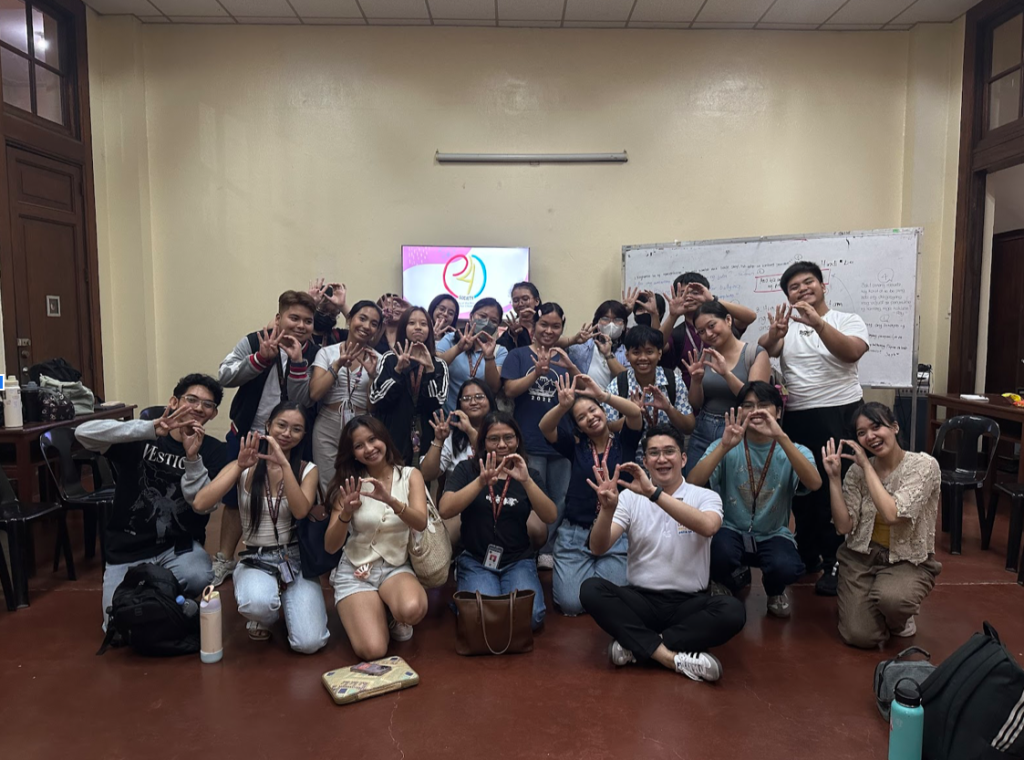 Community of Inquiry session with College of Education students, under UP Philosophy for Children Society.
Community of Inquiry session with College of Education students, under UP Philosophy for Children Society.
If there is one thing I hope you take from this (as a reader who may be considering a BA in Philosophy from the department), it is to move beyond the notion of Philosophy as just a pre-law/medical course. I won’t deny that Philosophy can serve as a strong foundation either for law school or medical school; in fact, there is no doubt that it’s one of the best preparations, if those are the paths you intend to take. But Philosophy can also be so much more than that. If your aspiration goes beyond law or medicine, it still will provide you skills that are essential in diplomacy, public service, business, policymaking, education, and any field that is based on flexible thinking and ethical reasoning. At its core, philosophy will not just develop your ability to think and listen carefully, but also the ability to ask the right questions with empathy. With all this considered, it will train you to become not just a better lawyer, diplomat or teacher, but ultimately, a better person.
